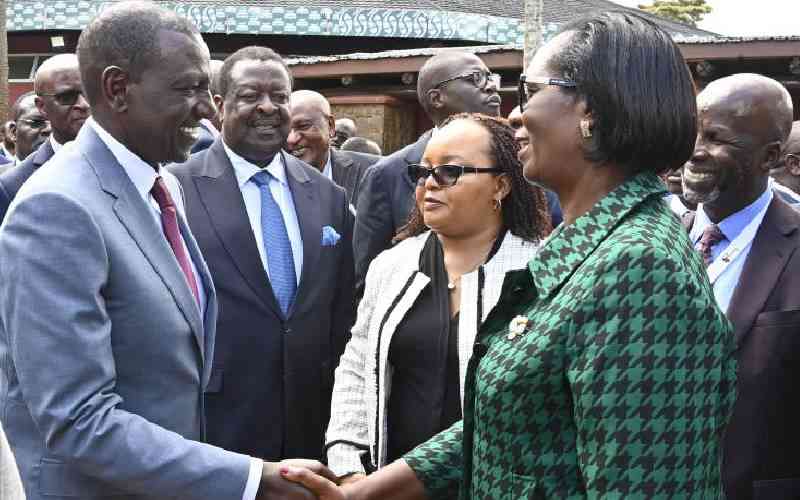By Macharia Kamau
Hefty allowances to civil servants are on the chopping board as the State seeks to manage the ballooning public wage bill threatening to cripple the economy.
A report by Kenya Institute of Public Policy Research and Analysis (KIPPRA) noted the allowances paid to civil servants have made the Government the preferred employer.
KIPPRA advocates a radical review of the allowances policy, noting some of them should be scrapped while others redesigned.
Currently, allowances have the effect of doubling employee’s pay and in some instances growing it by a factor of 10. KIPPRA recommends capping of allowances such that they account for between 10 and 25 per cent of civil servants gross pay.
The report, commissioned by the Salaries and Remuneration Commission (SRC), is expected to partly inform the restructuring and rationalisation of the public service geared towards taming the rising public wage bill.
The Government spent Sh464 billion last financial year in paying wages to its employees, a figure expected to increase to over half a trillion this financial year.
“There is need to consolidate non-incidental allowances in the public sector into basic salary, address the inefficiencies in allowances and institutionalise selected categories of allowances. The proportion of basic pay should be no less than 75-90 per cent of the total salary (including allowances),” said KIPPRA in the report.
“Allowances that are not directly linked to job responsibilities can be merged, redesigned or eliminated.”
In addition to basic salary, the report found that government employees also enjoy a wide range of allowances that in most instances end up more than doubling their pay. Some of the allowances paid to civil servants include rental house, special house, medical, hardship, acting ad special duty allowances.
Others are transport, commuter, ministerial, extraneous duty, uniform, transfer, domestic worker, leave and telephone calls allowances among others.
Public sector workers also get allowances to buy Christmas gifts, transport for deceased and buy lunch during working days.
This in comparison to the private sector where companies pay just medical, commuter, responsibility and acting allowances with a vast number of private sector employees having to do without allowances.
While on average, private sector pays a higher basic salary, allowances paid to employees are few and far in between compared to the civil service where allowances can significantly increase one’s monthly income.
“The public sector workers choose to stay in the public sector despite wage difference. This difference is however, compensated with the state of job security and allowances that they enjoy in the public sector compared to their counterparts in the private sector,” said the report.
Stay informed. Subscribe to our newsletter
According to the report, among the government employees that enjoy high levels of allowances include economists. While paid a measly Sh40 000 a month as basic pay, economists can earn as much as Sh400,000 in allowances – which is ten times more than their basic salary.
“A general observation is that the current remuneration structure in the public sector is adhoc and piecemeal,” notes KIPPRA in a presentation to SRC.
“Proportion of allowances at times account for over 50 per cent of gross pay across all job groups. This excludes allowances not reflected in the payroll.”
The report also notes that the allowances have created disparities in wage. “Some job groups in the civil service are entitled to a greater number of allowances than others,” said the report.
“This has promoted inequalities in wages. Individual incomes from allowances highly supplement the basic remuneration.”
 The Standard Group Plc is a
multi-media organization with investments in media platforms spanning newspaper
print operations, television, radio broadcasting, digital and online services. The
Standard Group is recognized as a leading multi-media house in Kenya with a key
influence in matters of national and international interest.
The Standard Group Plc is a
multi-media organization with investments in media platforms spanning newspaper
print operations, television, radio broadcasting, digital and online services. The
Standard Group is recognized as a leading multi-media house in Kenya with a key
influence in matters of national and international interest.
 The Standard Group Plc is a
multi-media organization with investments in media platforms spanning newspaper
print operations, television, radio broadcasting, digital and online services. The
Standard Group is recognized as a leading multi-media house in Kenya with a key
influence in matters of national and international interest.
The Standard Group Plc is a
multi-media organization with investments in media platforms spanning newspaper
print operations, television, radio broadcasting, digital and online services. The
Standard Group is recognized as a leading multi-media house in Kenya with a key
influence in matters of national and international interest.









